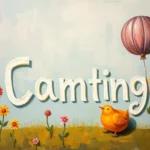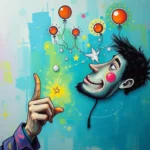
Have you ever awakened from a dream that felt like a scene from a gripping novel, leaving you with lingering emotions and questions? Dreams, much like literature, hold the power to transport us to new worlds and explore the depths of our psyche. They reflect our desires, fears, and even aspects of our identity we may not fully understand. In this article, we will delve into the symbolism, experiences, and personal growth that can emerge from dreams that feel like intricate narratives.
As you navigate through the pages of your dreams, remember that each story is uniquely yours—crafted from your experiences, emotions, and subconscious thoughts. By understanding the themes within your dreams, you can gain invaluable insights into your waking life, leading to more profound self-awareness and growth.
Dream Narratives: Unraveling the Storyline
Dreams often resemble the chapters of a novel, filled with symbolic characters and plot twists that reflect our inner world. When we analyze symbols, we begin to see that they serve as windows into our subconscious. Let’s explore some common symbols you might encounter in these narrative dreams:
-
Characters: The people in your dreams can represent different facets of yourself or significant figures in your life. A mentor may symbolize wisdom you’re seeking, while a rival could reflect your inner conflicts or insecurities.
-
Settings: The locations in your dreams often evoke a particular mood. An abandoned house might suggest feelings of neglect or unresolved issues, while a beautiful garden could represent personal growth and flourishing.
-
Objects: Items in your dreams can hold powerful meanings. A book might symbolize knowledge or a quest for understanding, while a key can represent unlocking new opportunities or insights.
-
Emotions: The feelings experienced during the dream are equally important. Joy, fear, or sadness can guide you toward understanding what your subconscious is processing.
-
Journeys: Many dreams involve a journey or quest, which can symbolize the path you’re currently on in your waking life. Consider what obstacles you overcame and what destinations you sought.
By examining these symbols in your dream narrative, you can uncover the deeper meanings that resonate with your experiences, desires, and aspirations. The more you reflect on these elements, the clearer the story becomes—a narrative that can guide you toward greater self-awareness.
Living the Story: Scenarios That Speak Volumes
Now that we’ve dissected the components of your dream narrative, let’s dive into some scenarios that may resonate with your own experiences. Each dream scenario acts like a chapter in a book, revealing not only the plot but also the underlying themes that may relate to your waking life.
1. The Lost Manuscript
You find yourself searching for a manuscript you wrote, but it keeps slipping through your fingers. This dream may indicate feelings of self-doubt regarding your creative abilities or a fear of losing your voice. Perhaps you’re grappling with the pressure to produce something meaningful. Reflect on what you’ve been working on lately—are there any fears of inadequacy that you need to confront?
2. A Dramatic Performance
In this dream, you’re on stage, but you’ve forgotten your lines. The audience watches in anticipation, and you feel a surge of panic. This scenario often symbolizes performance anxiety in your waking life. It might relate to a recent presentation, interview, or social situation where you felt judged. To overcome this anxiety, practice self-compassion and remind yourself that everyone makes mistakes.
3. The Unexpected Reunion
You unexpectedly meet an old friend or ex-lover in a crowded café. The conversation flows easily, and you feel a sense of nostalgia. This dream can represent unresolved emotions or a longing for connection. It might be time to reflect on your past relationships—are there lessons or feelings that need closure? Consider reaching out to someone from your past or simply acknowledging the importance of those memories.
4. The Infinite Library
You wander through an endless library filled with books, each containing a story of your life. You can pick any one to explore. This dream signifies your journey of self-discovery. It suggests that you have many untapped potentials and experiences that await you. Take this as a prompt to dive deeper into your interests and passions—what stories do you want to write in your life moving forward?
5. The Editor’s Red Pen
You find yourself in a room filled with editors critiquing your work with red pens, and you feel exposed and vulnerable. This scenario often reflects your inner critic, urging you to examine how you perceive your achievements. Are you too harsh on yourself when it comes to your accomplishments? Consider ways to cultivate a more supportive inner dialogue, allowing yourself the grace to learn and grow.
These scenarios highlight how dreams mirror our waking experiences, inviting us to explore themes of identity, anxiety, nostalgia, and self-discovery. Each dream is a personal narrative that encourages us to reflect on our lives and the paths we choose.
Crafting Your Narrative: The Journey of Personal Growth
As we wrap up our exploration of dream narratives, it’s essential to recognize how these dreams can serve as catalysts for personal growth. Just as characters evolve throughout a story, we too can learn from our dreams and integrate their lessons into our waking lives.
-
Embrace Reflection: Take time to journal about your dreams. Write down the symbols, characters, and emotions that stood out to you. This practice can lead to deeper insights and help you identify patterns in your dreams over time.
-
Seek Meaning: Consider what themes emerge from your dreams. Are there recurring characters or settings? How do these relate to your current life situation? By understanding the overarching narrative, you can gain clarity on your desires and fears.
-
Engage in Active Imagination: Use visualization techniques to engage with your dream characters or scenarios. Imagine conversations with them, exploring how they reflect aspects of yourself. This process can lead to profound self-discovery and healing.
-
Set Intentions: After reflecting on your dreams, set intentions for how you want to grow. Whether it’s improving your self-confidence, nurturing relationships, or pursuing creative endeavors, let your dreams guide your aspirations.
-
Share Your Stories: Discuss your dreams with trusted friends or join a dream-sharing group. Sharing your experiences can provide new perspectives and insights, enriching your understanding of your dream narrative.
Dreams are not just fleeting experiences; they are powerful tools for self-exploration and transformation. By embracing the narratives that unfold in our sleep, we can navigate the complexities of our waking lives with greater awareness and intention.
Reflect on this: What story do you want to write for yourself? Your dreams are the first drafts—inviting you to revise, edit, and ultimately create a narrative that resonates with your true self. Embrace the journey, and let your dreams guide you toward the life you wish to live.







